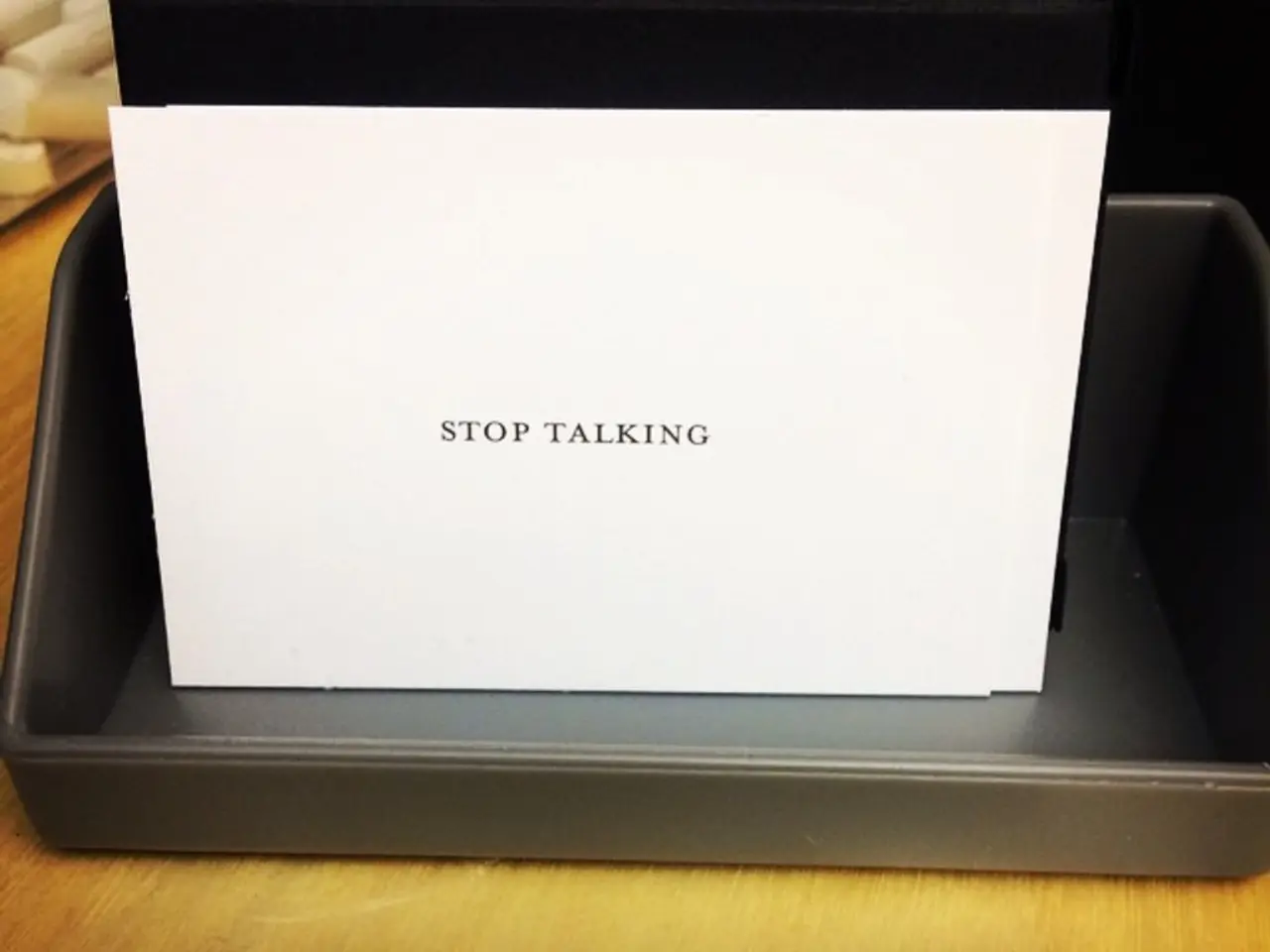Improving Mediation Success with Emotional Awareness and Management Skills
Emotional intelligence (EI) is increasingly being recognised as a crucial tool for mediators in alternative dispute resolution (ADR), significantly enhancing their ability to guide disputing parties towards effective and amicable resolutions.
In mediation, a neutral third party facilitates communication between parties to promote resolution. With high emotional intelligence, mediators can create a safe and supportive atmosphere, where parties feel heard and respected, fostering open dialogue [1][2]. This environment is essential for resolving conflicts constructively.
One of the key benefits of EI is its ability to manage emotional dynamics. By preventing or de-escalating emotional outbursts, mediators ensure that discussions remain productive rather than confrontational [4]. This skill is vital in maintaining a conducive environment for conflict resolution.
Empathy is another essential EI skill for mediators. By empathetically recognising the feelings and perspectives of all involved, mediators can bridge gaps between disputants and promote mutual understanding [2][3]. This fosters a collaborative atmosphere, reducing conflict escalation and increasing satisfaction levels.
Effective communication is another area where EI shines. Techniques such as active listening, paraphrasing, and awareness of nonverbal cues are grounded in emotional intelligence, improving clarity and reducing misunderstandings [3]. This enhances the mediation process, leading to more successful outcomes.
Moreover, EI enables mediators to adapt their approach based on the emotional and relational dynamics of the parties. This flexibility maximises the chances of settlement, as mediators can judge when to bring parties together or meet separately [4].
Empirical data supports the role of EI in better outcomes. Mediators who master emotional intelligence achieve higher agreement rates and greater satisfaction among parties [5]. Additionally, research indicates that emotionally intelligent conflict management can reduce workplace conflicts by up to 60% and improve team productivity, highlighting EI’s broader conflict resolution benefits [3].
In conclusion, emotional intelligence equips mediators with critical interpersonal skills that directly influence their ability to guide disputants to effective, amicable resolutions in ADR processes. This not only improves agreement rates but also enhances the experience and satisfaction of the parties involved [1][5].
[1] "Effective interpersonal skills facilitate clear communication." [2] "Emotional intelligence serves as a powerful tool in mediation." [3] "Emotional intelligence enhances mediation by fostering better relationships and improving communication between conflicting parties." [4] "A mediator with high emotional intelligence can navigate the emotional landscape of disputes." [5] "Developing emotional intelligence in mediators is a multifaceted process requiring self-assessment, training, seeking feedback, incorporating mindfulness practices, and continuous reflection."
- Science and health-and-wellness are interconnected, as emotional intelligence (EI), a significant aspect of mental health, is crucial for mediators in promoting effective and amicable resolutions in alternative dispute resolution (ADR).
- Mental health is instrumental in the mediation process, as empathy, an essential EI skill, fosters mutual understanding among disputing parties, bridging gaps and reducing conflict escalation, thereby improving overall satisfaction and resolution outcomes.




